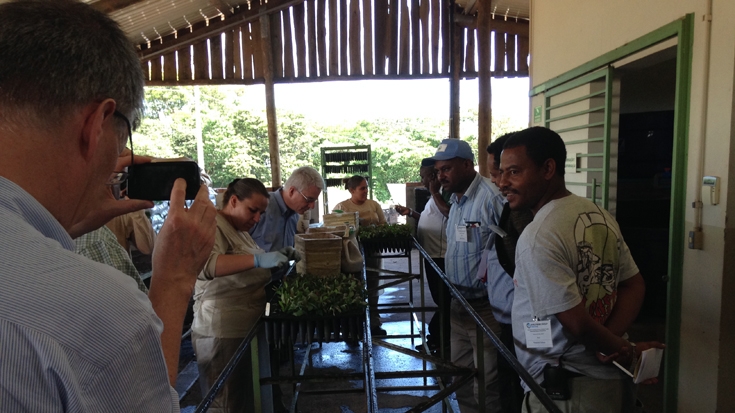To request a SSKE with Brazil CMU, please check the guidelines and activity request link.
South-South Knowledge Exchange (SSKE) can be defined as an exchange of information, technologies, experience, skills and resources in the political, economic, social, cultural, environmental or technical domain, between governments, organizations, and individuals in developing nations. South-south cooperation is meant to strengthen developing countries’ voice and their bargaining power in multilateral negotiations, as well as giving them the opportunity to strengthen their economic ties.
The World Bank is well known as a development champion and knowledge institution with private/public links and local know-how in over 120 countries, in addition to decades of experience on the ground. Acknowledged by its high principles of both its existing knowledge of local circumstances along with trends in sector-specific fields, the World Bank is capable to broker important relations among countries with knowledge gaps.
During the last decade Brazil achieved very rapid and significant social progress (e.g., large reductions in poverty and inequality, considerable improvements in children health outcomes and a significant expansion in access to basic education, which is now almost universal). During this same period Brazil’s also made a concerted effort to step-up its international projection and participation, by increasing its participation at the G-20 fora, establishing cooperation agreement with China, Russia and India – the BRICs – and numerous other countries, and by significantly increasing relations and SSKE efforts.
Despite those significant achievements, important challenges remain for Brazil. Within that dual context, Brazil is a unique source of developmental knowledge, concrete and applied policy, academic, scientific and institutional experience and expertise in many fields and issues of immediate relevance and application to other parts of the developing world, especially for Africa and Latin America & the Caribbean. At the same time, the broadening and deepening of its diplomatic and economic relations with other countries and the development of new markets is a necessary condition for Brazil’s continued economic growth, internal employment generation and social development.
Since 2009, the World Bank Country Management Unit (CMU) for Brazil has facilitated over 170 SSKE activities from 90 developing countries around the world.
